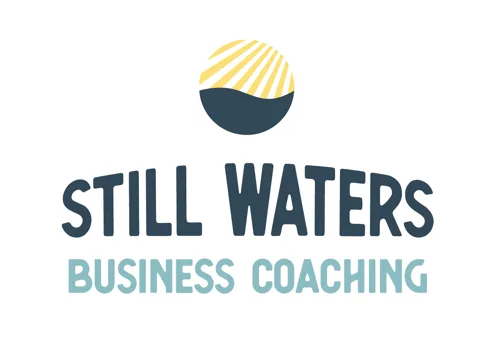In a Fog About How to Grow Your Business?
There is a clear way forward!
Let us help you increase profits, build a winning team, and get some time back for yourself.
How you may benefit
Our aim at Still Waters Business Coaching is provide you with the tools to help you achieve your business goals, building your best team, and make having time for your family and the other important people in your life.
Step 1: Identify roadblocks that are keeping you from growing.
Step 2: Decide where you want to take your business.
Step 3: Provide a “toolkit” of best practices to meet your needs and goals.
Step 4: Provide focus and accountability to keep you on track.
Do You Want To Increase Performance

Do you know that you can do more with your sales and profitability, but can't crack the code?
Need To Build A High
Performing Team

Do you feel like you have a team that can reach for the stars, but they just need more development?
Want to Increase Their Confidence

Having a plans for your business will help you turn the mental corner in your mind from, "Can we?" to "We Got This"
Want to Attain Freedom

Freedom means something different to every business owner. For some it means selling, for others it means being able to go on vacation 3 months a year. What Does It Mean To You?
How you may benefit
Our aim at Still Waters Business Coaching is provide you with the tools to help you achieve your business goals, building your best team, and make having time for your family and the other important people in your life.
Step 1: Identify roadblocks that are keeping you from
growing.
Step 2: Decide where you want to take your business.
Step 3: Provide a “toolkit” of best practices to meet your
needs and goals.
Step 4: Provide focus and accountability to keep you on
track.
Who Can Benefit




Do You Want To Increase Performance
Do You Need To Build A High Performing Team
Do You Want to Increase Their Confidence
Do You Want to
Attain Freedom
Do you know that you can do more with your sales and profitability, but can't crack the code?
Do you feel like you have a team that can each for the stars, but they just need more development?
Having a plans for your business will help you turn the mental corner in your mind from, "Can we?" to "We Got This"
Freedom means something different to every business owner. For some it means selling, for others it means being able to go on vacation 3 months a year. What Does It Mean To You?
Others Who Have Benefited
Others Who Have Benefited

Are You Making The Six Critical Mistakes In Your Business?
Not sure what those mistakes are?
Get your free E-book that reveals the top 6 mistakes business owners make... and the solutions you need to break away from those mistakes.
These solutions are called "Golden Keys to Freedom", because they allow access to a simple solution for a difficult problem.
These Golden Keys are all you need to start dramatically improving your cash flow, building your team's productivity, and increasing your free time!
Ready to start growing your business NOW?
























Facebook
LinkedIn